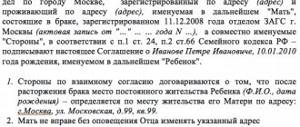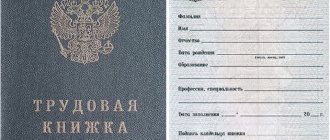What the law says
The legislation provides for certain standards that all citizens, without exception, must comply with, regardless of where they live, in a private house or in an apartment building.
These norms can be studied by reading Federal Law No. 52, which is called “On the sanitary and epidemiological welfare of the population.” This law mentions acceptable noise standards both within and outside the city limits. The law also contains sanitary standards that describe the permissible sound level inside and outside residential premises.
ATTENTION !!! The standard noise level outside residential premises at any time of the day is 60 dB. From 23:00 to 07:00 in the morning, noise inside a residential building should not exceed 30-45 dB. From 07:00 in the morning to 23:00 in the evening, noise levels of no more than 55 dB are allowed.
In some regions, the permissible noise standards may be slightly changed, but they should not completely contradict established legal acts. This suggests that noise, including music, is only acceptable if it does not cause too much disturbance to people and does not affect their functional behavior.
How can you prove that your neighbor in your dacha listens to music loudly or sings karaoke?
Moreover, it is also necessary to prove that the neighbors in the dacha play music loudly. To do this, you need to measure the noise level in dB.
According to Sanitary Standards SN 2.2.4/2.1.8.562-96 of the Russian Ministry of Health, the maximum sound level in areas immediately adjacent to residential buildings should not exceed 70 decibels (dbA) from 7 a.m. to 11 p.m., and from 11 p.m. to 7 a.m. 60 dbA.
In order to record the level of noise emitted from loud music from your neighbors, you need to call a specialist from Rospotrebnadzor, who will measure the noise level with a sound level meter and issue an appropriate conclusion.
All this leads to incomprehensible red tape and, in fact, it is not so easy to force neighbors in the country to remain quiet.
If the problem of fines were solved at the federal level, then there would be fewer violators and more protocols. The police will be more effective in dealing with loud neighbors and forcing them to keep quiet.
We listen to lawyers and fight offenders in our dachas
If your dacha neighbor is too rowdy and disturbs other residents with his loud music, then it is best to call the police. This is what lawyers advise to do. The whole point is that you can measure the dB level, for example, with a program on your phone (which, of course, must be installed first), but, alas, the result of such an examination will not be considered by the court.
Calling representatives of order to the troublemaker is the only right decision. As a rule, upon arrival, the police issue a fine to the violator. Its size directly depends on whether the violator has previously been brought to justice for violating the order.
In practice, when the police arrive, and this happens for the first time, that is, the neighbor in the country house behaved normally before, then the representatives of the law may not issue a fine, but issue the first warning. If the offender, after receiving a “reprimand,” turned on loud music and thereby disturbed the peace of the neighbors, upon arrival the police will issue him a fine of up to 500 rubles. If the neighbor breaks the law for the third time, then the sanctions will be much higher - from 500 to 1000 rubles.
ATTENTION !!! If the fine did not have any effect on the neighbor, or upon the arrival of the police it turned out that he was under the influence of alcohol (drugs), then representatives of the order have the right to bring him to justice under other articles, including criminal ones.
Lawyers do not advise filing a lawsuit against a neighbor in the country who listens to loud music, since this will not bring any benefit to the applicant. On the contrary, the plaintiff will spend more money on going to court and considering the case.
How to deal with the problem
Note! Many music lovers are sure that during the day you can do absolutely anything in your apartment, even organize a real disco. After all, almost everyone knows that there is a law regarding noise at night. But even during the day the level of music played is limited.
Therefore, when your neighbors are making noise during the day or doing repairs, talk to them. Maybe they don’t realize that behind the wall there lives a small child or a person who is especially sensitive to loud sounds. A calm conversation is the right start to establish good neighborly relations. And it is likely that the problem will be solved. Emotions are contraindicated during this conversation. Aggressive screams can only make the situation worse.
The conversation may not lead to the desired compromise. Then consult with the local police officer. Tell him that the neighbors play loud music during the day. He knows what to do.
Of course, careless government officials may refuse to help you. And even try to convince you that it is legal when the neighbors are noisy during the day. This is wrong. To hurry it up, leave a written statement about the violation of your rights. To do this, be sure to ask the police officer to make a copy for you with a note indicating the date of delivery. After this, he will most likely have a conversation. And he will inform you about it.
How to solve the problem of “loud music” in SNT
You can deal with a “problematic” neighbor in your dacha who constantly listens to loud music with the help of the SNT board, that is, organize a general meeting.
As a rule, members of gardening partnerships respect each other’s interests and, even during important celebrations, observe a regime of silence, that is, turn off the music at 23:00.
If one of the neighbors does not want to comply with the norms prescribed by law, then upon receiving a complaint against him, the chairman of the board of SNT and its members go to the troublemaker and, if possible, try to urge him to maintain order. As a rule, it is after the general “impact” on the offender that loud music no longer causes disturbance to the members of the partnership.
Neighbors play musical instruments: what to do if it's annoying
Playing musical instruments also creates a lot of noise. First of all, try not to get angry with your child playing music. And try to come to an agreement with the young musician’s parents. Explain that the sounds of the piano, violin and other instruments are annoying and interfere with resting or doing business. Recommend studying in specially equipped rooms in music schools.
If home rehearsals are still necessary, then create a schedule. After all, you are not always in your apartment. Or at a certain time you have the TV on, and then the sounds from neighboring apartments are not particularly bothersome.
Loud music during the day, what lawyers advise
If your neighbor in the country listens to loud music during the day and not at night, what should you do then? The majority of Russian residents are confident that during the daytime they have the right to do whatever they want and nothing will happen to them for it. It's a delusion. It should be remembered that there are small children, sick people and pensioners who need to rest during the daytime. The legislation provides for the so-called law “On Silence”. It states that from 13:00 to 15:00 every day it is prohibited to make noise. This legislative act was created specifically in order to protect the interests of a certain category of citizens and thereby provide them with peace at certain times of the day.
What do lawyers advise you to do if your dacha neighbor turned on loud music exactly at the time specified in the law “On Silence”? The first thing you need to do is try to talk to him and explain the situation, why they are contacting him. For example, the neighbors have a small child, and the neighbor in the countryside does not allow him to sleep during the day because of listening to loud music. As practice shows, most people still respect the interests of their neighbors, and after a conversation, music no longer causes inconvenience.
IMPORTANT !!! If the neighbor did not cooperate and continued listening to music, then you should call the police. Upon arrival, they will have a conversation with the offender, and if a complaint has been made against him for the first time, he will not even receive a fine. If complaints are received repeatedly, then penalties will apply.
You should be aware that by the time the police arrive at the scene, the offender may already turn off the music, and then the law enforcement officials will not be able to draw up a report. Lawyers advise that it is best to contact the local police officer, and it is even better to write a collective appeal.
What laws on breaking silence are in effect in 2021?
In 2021, issues of ensuring peace and quiet for citizens are regulated by the laws of constituent entities and acts of local governments.
No matter how hard State Duma deputies try to push through draft federal laws on silence that will apply throughout the country, their attempts have so far been unsuccessful.
New State Duma bills on liability for violating silence
Bills to introduce administrative liability for disturbing citizens' peace and quiet were discussed repeatedly and rejected under various pretexts.
One of the bills is still alive; its consideration has been postponed from February 6, 2021 to a later date. The bill proposes to supplement the article of the Code of Administrative Offenses on petty hooliganism with a clause that includes a fine for violating the silence in residential areas from 10 pm to 6 am.
Local laws regarding disturbance of peace and quiet
Today the situation with the protection of silence is as follows. There are legislative acts of regional and local authorities (for example, in the Moscow region there is a law of March 7, 2014 N 16/2014-OZ with amendments from April 2021, in Moscow there is a law of July 12, 2002 N 42).
These regional laws contain rules that tell us at what hours and where noise is unacceptable.
In addition to the laws on maintaining peace and quiet, each subject also has a local Administrative Code - a law that contains sanctions for violations.
For example, if neighbors in their dacha listen loudly to music in the SNT of the Moscow region, they can be fined up to 3 thousand rubles, and if this happens repeatedly - up to 5 thousand (Article 3.1 of the Moscow Region Code on Administrative Offenses (law of May 4, 2016 N 37/2016-OZ as amended as of May 1, 2020).
But there is one BUT! In order for the police to come to deal with neighbors, they must be authorized to do so. To do this, the executive authorities of the constituent entities of the Russian Federation need to enter into an agreement with the internal affairs bodies. This is expressly provided by law. If there is no such agreement, then protocols for fines for loud music in SNT are drawn up by officials of the constituent entities of the Russian Federation. And sometimes these officials cannot be found during the day. And even if you do find them, they are unlikely to get to SNT, and by that time the neighbors may have turned off the loud music.
What punishment does the law provide for such a violation?
As a result of unlawful acts, citizens who violate the established regime will be brought to administrative responsibility. The simplest method of punishment is the imposition of fines.
Today the following recovery options are available:
- from 500 rubles – for a violation committed for the first time;
- from 1000 rubles – for repeated attraction;
- arrest for 15 days for a malicious offense.
There are a few exceptions where music and loud noises at night are permitted. We are talking about accidents, restoration work, emergencies and investigative activities that cannot be postponed. In any case, do not be afraid to defend your rights and seek help from the relevant authorities.
Where to call?
To bring loud music lovers to justice, it is necessary to call specialists from the competent authorities. However, only in some cases the situation can be resolved by calling. The priority option is to file a written complaint, preferably a collective one.
During the daytime
If music plays during the daytime, then you need to call the local police officer. He will draw up a protocol on the administrative offense. The document will be transferred to the administrative commission and the violator will be subject to an administrative fine. The amount of the fine is established by regional legislation. But usually these are insignificant amounts - from 100 to 1000 rubles.
After 23.00
If loud music is playing at night, you can contact the following authorities:
- If your neighbors have music playing, you should call the police. If night concerts have become regular, it is necessary to prepare a collective complaint to the administration. There is judicial practice on the eviction of the owner from an apartment due to loud music at night.
- If music is played in a club or bar located in the house, it is necessary to prepare a collective complaint to the prosecutor's office. The prosecutor will go to court with a lawsuit against the organization. This will entail the suspension of the enterprise’s activities for up to 90 days.
Sample application
Consultation on document preparation
Are you tired of reading? We’ll tell you over the phone and answer your questions.
What can be considered noise on weekends and weekdays?
It is worth considering that at a late time, playing a guitar, piano and other instruments can create unnecessary sounds that will be heard even in the next house. Many people have such noisy neighbors and it is therefore advisable to know if this problem can be resolved peacefully. The noise standards are almost the same, as they were, for example, in 2019 and now.
Volume level of noisy sounds
In the evening, the period of silence begins at different times in the regions of the country. Actions that disturb the peace of people in a neighboring private house:
- loud singing in karaoke or simply in a raised voice;
- screams, noisy arguments, swearing;
- turned on players, tape recorders, radio, TV, audio system all night long;
- use of sources that increase noise (translators, horns, loudspeakers, sound amplifiers);
- launching fireworks, firecrackers and other pyrotechnics;
- an alarm going off in a car or in a private house if it is not turned off for a long time;
- repair work.
On a note
It is also worth knowing that there are exceptions to the rules when excessively noisy sounds can be tolerated both on weekdays and on weekends:
- if the Ministry of Emergency Situations is working nearby;
- when law enforcement agencies perform work (for example, the police are looking for a criminal);
- if there is an ambulance;
- during the elimination of dangerous situations that damage property, as well as threaten the lives of people;
- in case of accidents involving equipment (road breakdowns and other emergency situations);
- if there is an event with a large number of people on the street (holidays, as well as rallies with permission from the authorities);
- when launching pyrotechnics in honor of any event in agreement with local authorities;
- if the noise does not harm the peace of people in the area, and the sounds do not reach neighboring buildings and garden plots.
Norms in Russia
If neighbors often violate the law on silence, then they can be subject to administrative punishment and payment of a fine.
First, the local police officer will have a preventive conversation with the person, and the second time you will have to pay a fine.
If the rowdy cannot be influenced for a long time, then the violator can be taken into custody for up to 15 days. Therefore, it is important to remember from when and until what time the law obliges you to behave quietly and not make noise.
Tips for quieting noisy neighbors
If patience is running out and people in the neighborhood are loud at night, then you should not immediately enter into conflict with them. It is advisable to try to speak in a friendly and polite manner, reminding them how much noise is allowed by law. Neighbors should be asked to remove the source of noise. The following must be followed thoughtfully and confidently:
- You need to show your intention to contact the police with a complaint. This is the second argument for the neighbors to stop making noise.
- If people in the neighboring house continue to disturb you at night in the same way, then you will just need to make a call to the police with a message about disturbing the silence. On the phone you can hear that this is not a sufficient argument for coming, but you need to be more persistent, describe the situation and say that this violation is repeated more than once.
- It is advisable to make sure that there are several other witnesses before calling the relevant authorities. These people will have to confirm the fact of the violation.
- You can make a few clues in advance. This could be video recordings of a conversation and noise measurements in dB through special applications.
Hammer
Alternative solutions to the problem
If you don’t yet want to contact the relevant authorities, you can try to solve the noise problem in a private house yourself. Only practice can show how effective these methods are. But according to those who have struggled with noisy neighbors, some of these tips have helped:
- You can do the same as your neighbors. If people listen to loud music at night, talk and laugh, then the same can be done in the morning when they go to bed.
- Also, when noisy neighbors are resting, you can start working with a rotary hammer or drill.
- Run a noisy lawnmower for several hours. On the one hand, it will be possible to tidy up your lawn while your neighbors are sleeping.
When is it allowed to make noise?
By the way, these methods of struggle can be considered humorous, and if noisy neighbors seriously disturb your night's sleep, it is better to contact the police.










